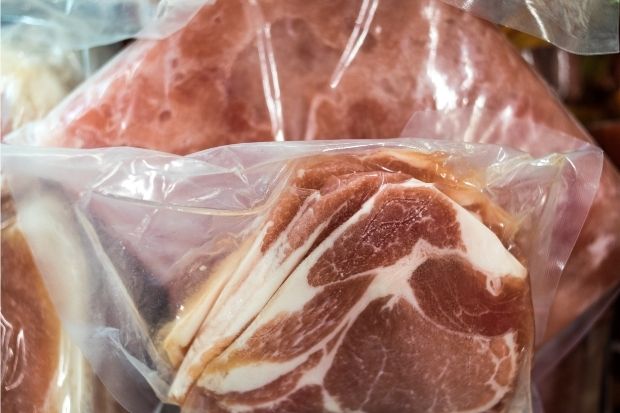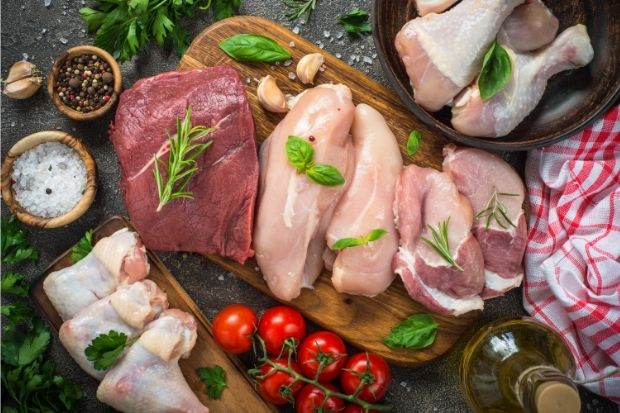The debate between buying and using meat that is fresh and meat that is frozen is one that is not likely to be settled anytime soon. While most people believe that fresh is always best, this isn’t necessarily true when it comes to meat.
There is little difference between fresh vs. frozen meat as long as you freeze and thaw out meat properly. If this surprises you, you’re not alone. The truth is that both types of meat can be healthy for you as long as you freeze it and thaw it out the right way.
Difference Between Fresh and Frozen Meat

There are a few myths out there about fresh vs. frozen fish and meat, and one of them is that when you freeze meat and fish, the foods can actually become more tender. The bottom line is that both the taste and nutritional value will be roughly the same as long as you freeze, store, and thaw the foods out properly. When not handled properly, these two properties may differ depending on whether your meat or fish is fresh or frozen, but it’s easy to handle these foods the right way if you know how.
Which Is Better for You?
When meat is fresh, it has a lot of vitamins and minerals in it, but over time those nutrients start to disappear. What this means in practical terms is this: you’re better off freezing your meat immediately and keeping the nutrients in there as opposed to letting meat that is fresh sit too long before you eat it. It only takes a few days for meat straight from the butcher shop to start losing nutrients, whereas if you freeze your meat immediately, you’ll save most of those nutrients and you’ll be able to have healthy and nutritious meat once you thaw it out to cook it.
Cost of Fresh Meat vs. Frozen Meat
As you can imagine, a lot of cooks wonder about the price differences between fresh and frozen meat. The interesting thing is that frozen cuts of meat can actually be up to 50% cheaper than meat that is cut fresh, and many times you get a healthier cut of meat when it’s frozen. Of course, that depends on when they cut and froze the meat. If they froze it properly and did so right after it was received fresh from the supplier, they’ve locked in most of the nutrients.
When To Choose Fresh Meat
Naturally, you should always choose meat that is fresh if you’re planning to cook it right away. And by right away, we mean within a day or two after getting it home from the grocery store. Remember that nutrients in the meat start to go away almost immediately, so meat that is fresh needs to be used quickly.
When To Choose Frozen Meat
Unless you’re planning to cook your meat right away, you should go ahead and freeze it so that more of the nutrients will remain in the meat. This means you can buy that fresh steak you want for your upcoming dinner party and freeze it so that it’s tasty and nutritious when cooked and served.

Which Cuts Are Better Frozen?
Some cuts are better frozen than others, so if you want to enjoy the best-tasting meats after thawing them out, here are the best cuts of meat for freezing purposes:
- Chicken: skin-on thighs, bone-in, whole chicken legs
- Beef and veal: ground meat, chuck, shoulder blade, brisket, short ribs, oxtails, shank, cheeks
- Duck: skin-on legs, bone-in
- Lamb: shoulder (chops), ground, shank
- Pork: bone-in shoulder, ground, belly
What Happens to Meat When It’s Frozen
One thing you need to remember when freezing meat is that you should never freeze it, thaw it out, then refreeze it. When a piece of meat is frozen, some of the cell walls get ruptured, which can affect the flavor and moisture content. Nevertheless, freezing meat—especially when done properly—drastically slows down the enzyme activity that leads to the food deteriorating in quality.
How To Properly Freeze Meat
The main tip for freezing meat is this: do it quickly. As soon as you determine you won’t be needing that steak or chicken immediately, go ahead and freeze it.
In terms of the freezing process, the best way to do this is to wrap the meat in an airtight plastic bag and place it in the freezer right away. Oh, and don’t forget to write the date on the bag so you know how long it’s been frozen.
How Long Does Meat Last in the Freezer?
Different meats have different timeframes for being in the freezer. Here are some general rules for keeping different kinds of meat in the freezer:
- Cooked poultry: 4 months
- Uncooked poultry (parts): 9 months
- Uncooked poultry (whole): 12 months
- Cooked meat: 2-3 months
- Uncooked roast: 4-12 months
- Uncooked ground meat: 3-4 months
- Uncooked chops or steaks: 4-12 months
What Happens if Meat Gets Freezer Burn?
Even meat frozen properly may get freezer burn, but if you follow the rules mentioned above, freezer burning is less likely to occur. If it does happen, just keep in mind that you can still usually eat the meat. The texture might be off, but the nutritional benefits are mostly the same.
How To Properly Thaw Meat

While freezing quickly is important, thawing out your meat should be done slowly, whether it’s frozen steak or frozen chicken breasts. Here are two good ways to thaw out your meat:
Refrigerator Thawing
Place the meat on a plate and put it in your refrigerator. Wait for 24 hours before unwrapping and cooking it.
Cold Water Thawing
Place the meat in a bowl and pour cold water over it. For the best results, change the water every 30 minutes while the meat is thawing. As a general rule, one pound of meat usually takes about an hour to thaw out, while two to three pounds usually take about two hours.
